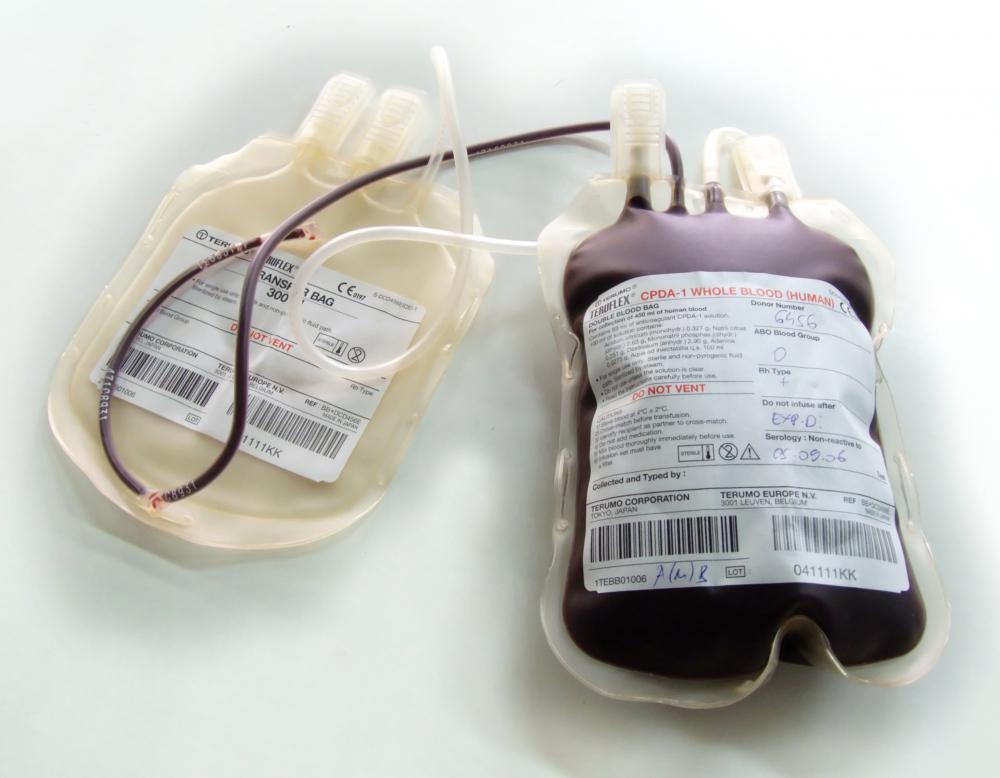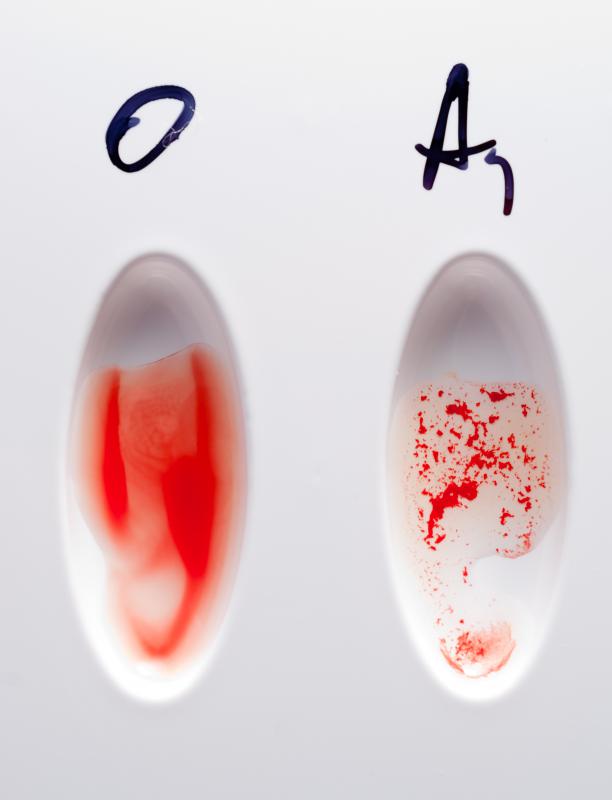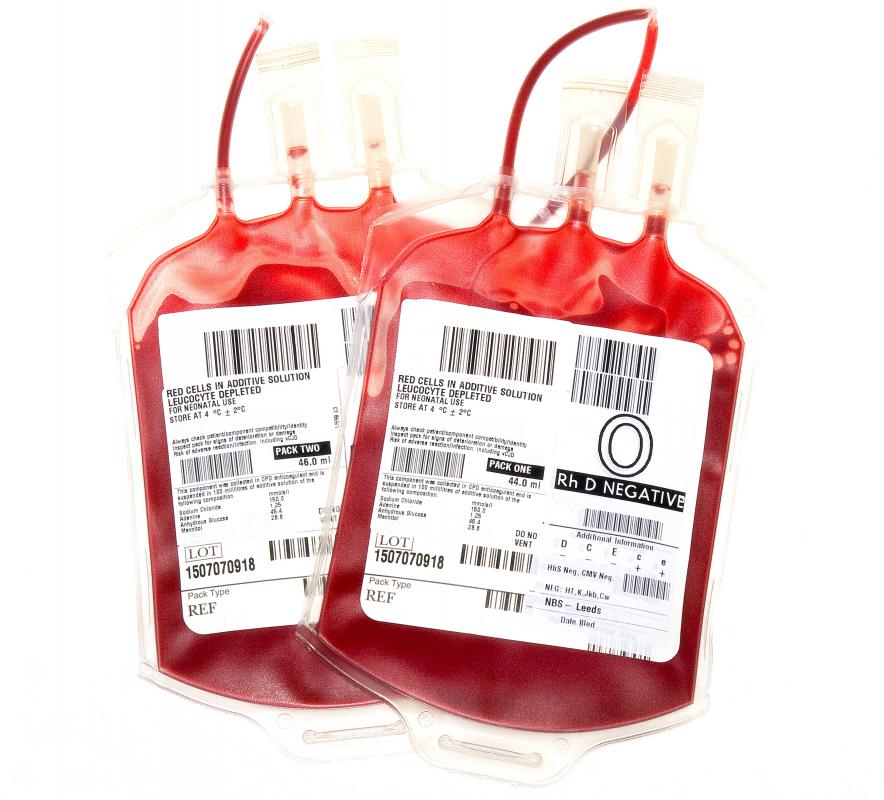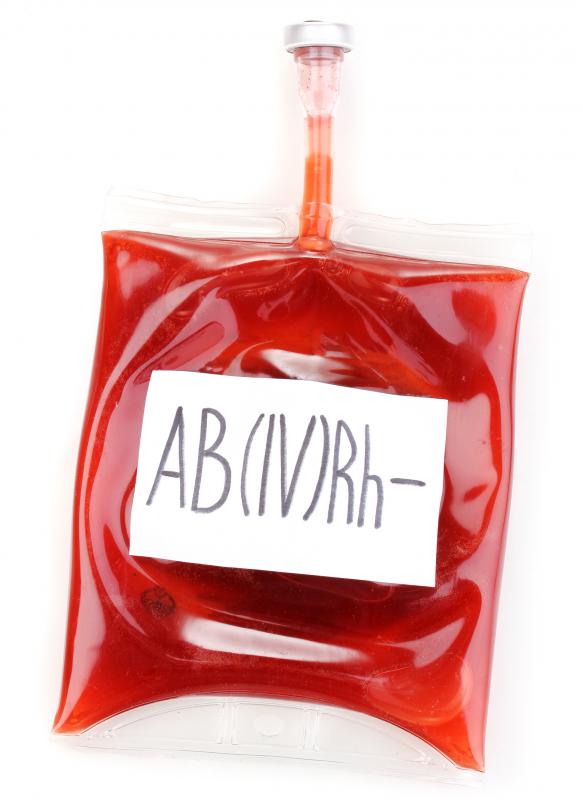At TheHealthBoard, we're committed to delivering accurate, trustworthy information. Our expert-authored content is rigorously fact-checked and sourced from credible authorities. Discover how we uphold the highest standards in providing you with reliable knowledge.
Is It Important to Know what Type of Blood You Have?
Knowing one’s blood type is important for a variety of reasons. The first is that in an accident, if one loses enough blood to require a transfusion, one can become severely ill if the wrong type is administered. Fortunately hospitals usually do a quick type test to avoid transfusing incompatible blood.
Prior to any surgery, blood is usually typed. These tests also used to be standard requirements prior to obtaining a marriage certificate in most states. This is no longer standard procedure in many states, but the reasons for requiring it were solid.

If a woman has a blood type that is negative and she conceives a child with a man with a positive type, the results can be devastating. Generally the first child conceived will be fine if the child has a positive type. However, the second child can develop what is called RH disease, and may be severely affected by the mother’s negative RH factor.
The body can produce antibodies, which attack the growing unborn child with a variety of results. In a sense, the mother’s body is allergic to the baby’s blood. For this reason, women who have a negative RH are given a vaccine after the birth of their first child, which can prevent such a reaction. This does not work in the opposite direction. A woman with a positive type can have a child with a negative type with no adverse reaction.

Knowing one’s blood type can also be important because there is a constant need for blood donations. Certain rare types have access to less supply than the most typical O positive. Being O negative is of great asset to one’s community since one is considered a universal donor. In all cases that do not require type specific blood, O negative is acceptable for transfusions.

Since O negative blood is fairly rare, those who possess this type can really serve their community by donating it on a frequent basis. Other types in high demand are AB, A, and B, both positive and negative. Sometimes people can only have transfusions that are specific to their blood type. So less common types really help everyone around them by being frequent donors.

Typing can also be an important first step to becoming a bone marrow donor. In general, the more rare one’s blood type, the more likely one could donate bone marrow and help save someone’s life. In the US, blood and bone marrow donations are particularly needed for those of Asian, Hispanic, and African-American descent.
These groups have a smaller population from which to draw than the Caucasian population. Thus they have more difficulty obtaining bone marrow. If one has a rare blood type, one should consider the possibility of becoming a bone marrow donor. Though there are no monetary rewards for such, the emotional rewards of saving someone’s life can be quite significant.
AS FEATURED ON:
AS FEATURED ON:

















Discussion Comments
Hmmm, i live in Australia and we don't have do it yourself kits here; you have to get a doc script to get a special order done. My brother asked me mine, and i didn't know, then he asked me to see what the response was when i went to check it out.
I was surprised at the reaction of the doctor. He asked ten questions why i wanted it and that i didn't need it! He still did my test, and when it came back and i went to see him, he said that they tested for everything else but the actual blood type. I asked for him to do it again, and we went through the ten questions again.
My brother and a few friends have had the same response from different docs from around the country. Whats the go? I am surprised it doesn't even come up on the personal file!
You would think that knowing a blood type would affect a certain script for any drug recommended by your doc, yeah?
If certain foods can have a major effect on our health (i'm talking long term here) wouldn't certain drugs too? Eg: why are so many people suffering diabetes and cancers? Check the study on Eskimos and what happened to a sample who were given salads and lean meals; they had to stop. Their cholesterol went through the roof!
Some foods are good for some people, so look into your family histories, and eat seasonal foods! Eg: not summer foods in winter etc. Have a great day, Saint Crispin.
I found out my blood type by donating. The red cross will send you a little letter type thing after you donate which says your blood type. I'm O negative so I try and donate a couple times a year.
You can find out. You can buy blood type kits for around $20. I bought one on Ebay, and it was really easy to use. I'm not sure why your doc said it was very expensive.
I don't know what type of blood I have but I'd like to. However, when I asked my physician, he said that it wasn't important. If you donate blood, they'll figure out what type you have and how to use it, he said. And, if you get injured, they'll figure out what kind you need at that time. After talking to my doctor, I later learned that the test is rather costly and I suppose barring any crazy situations you really don't *have* to know. The majority of people can carry on a perfectly normal life without ever knowing their blood type. Still I'd personally like to know!
Post your comments